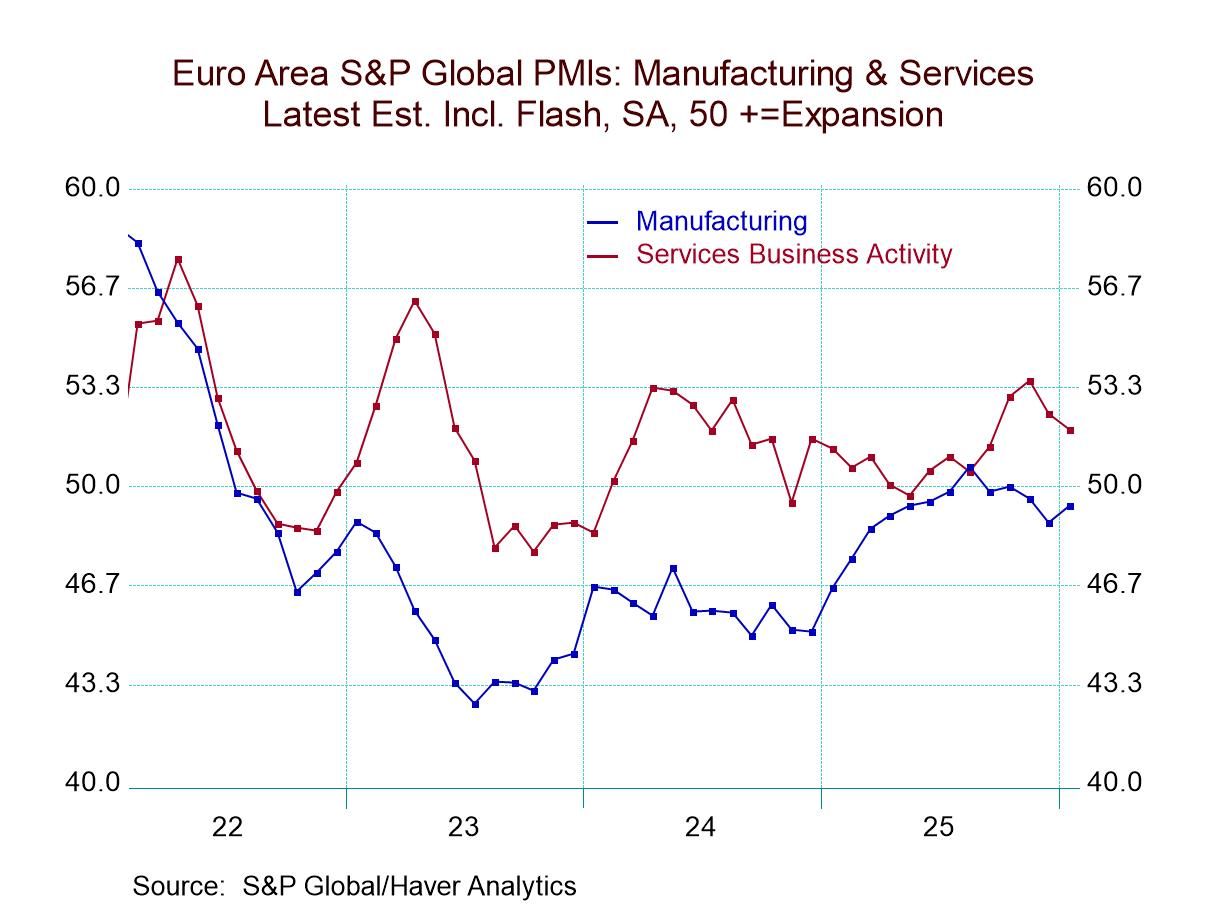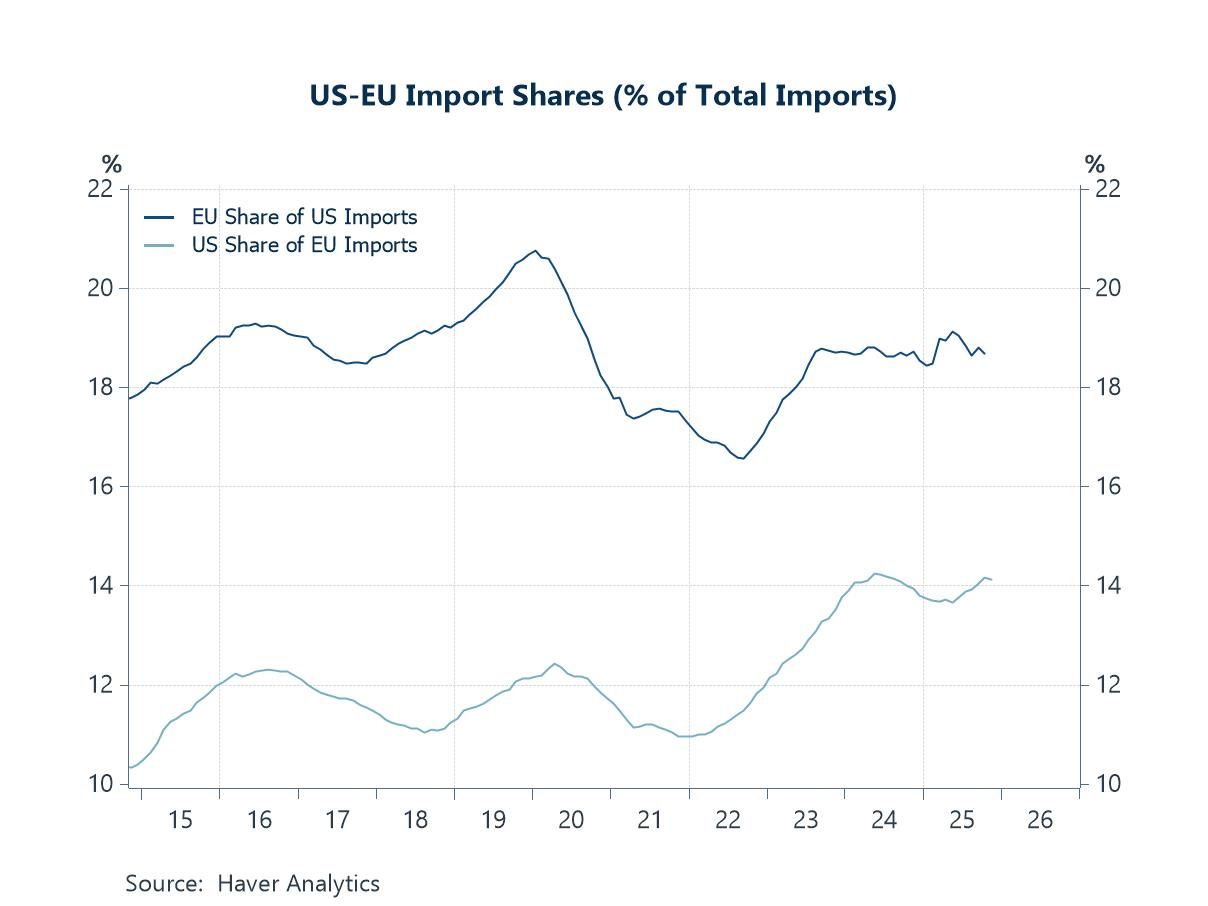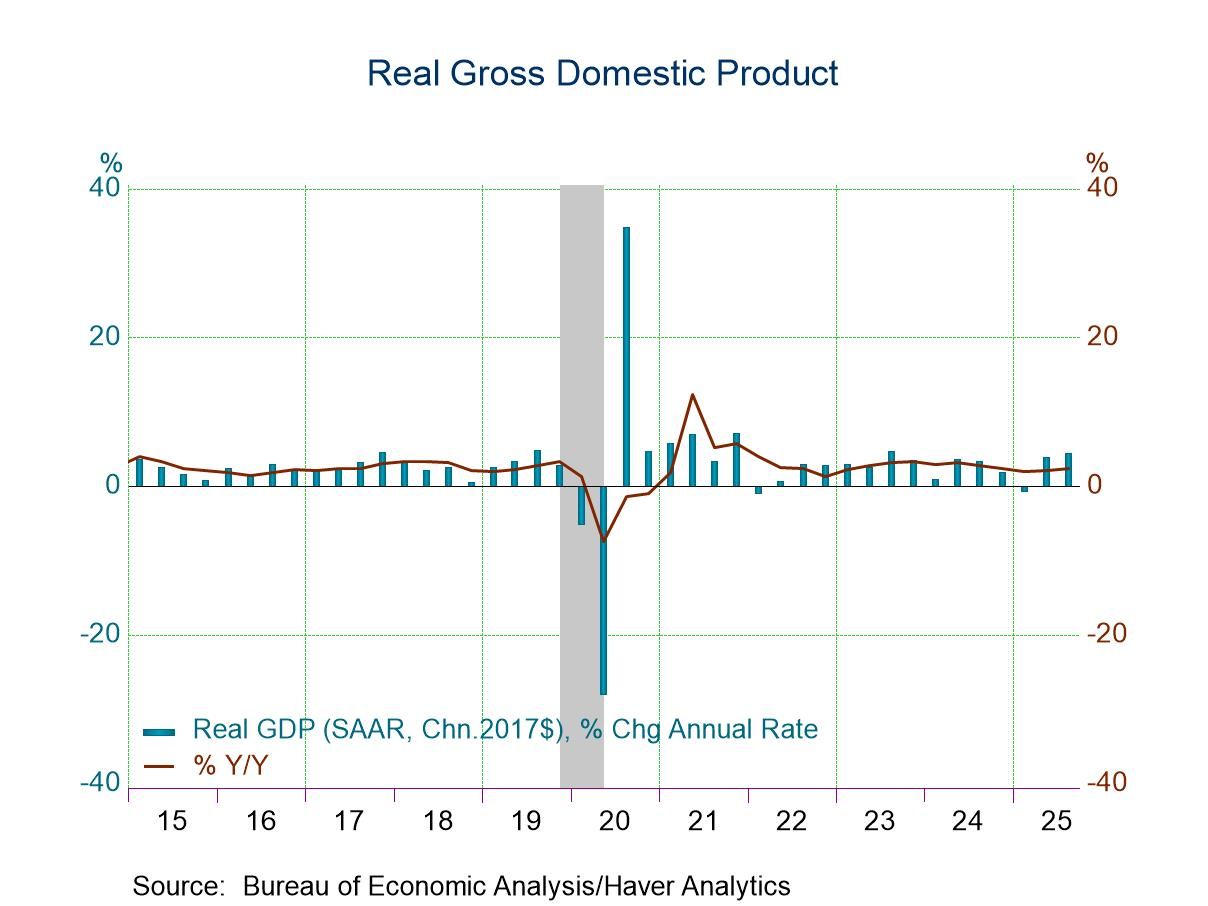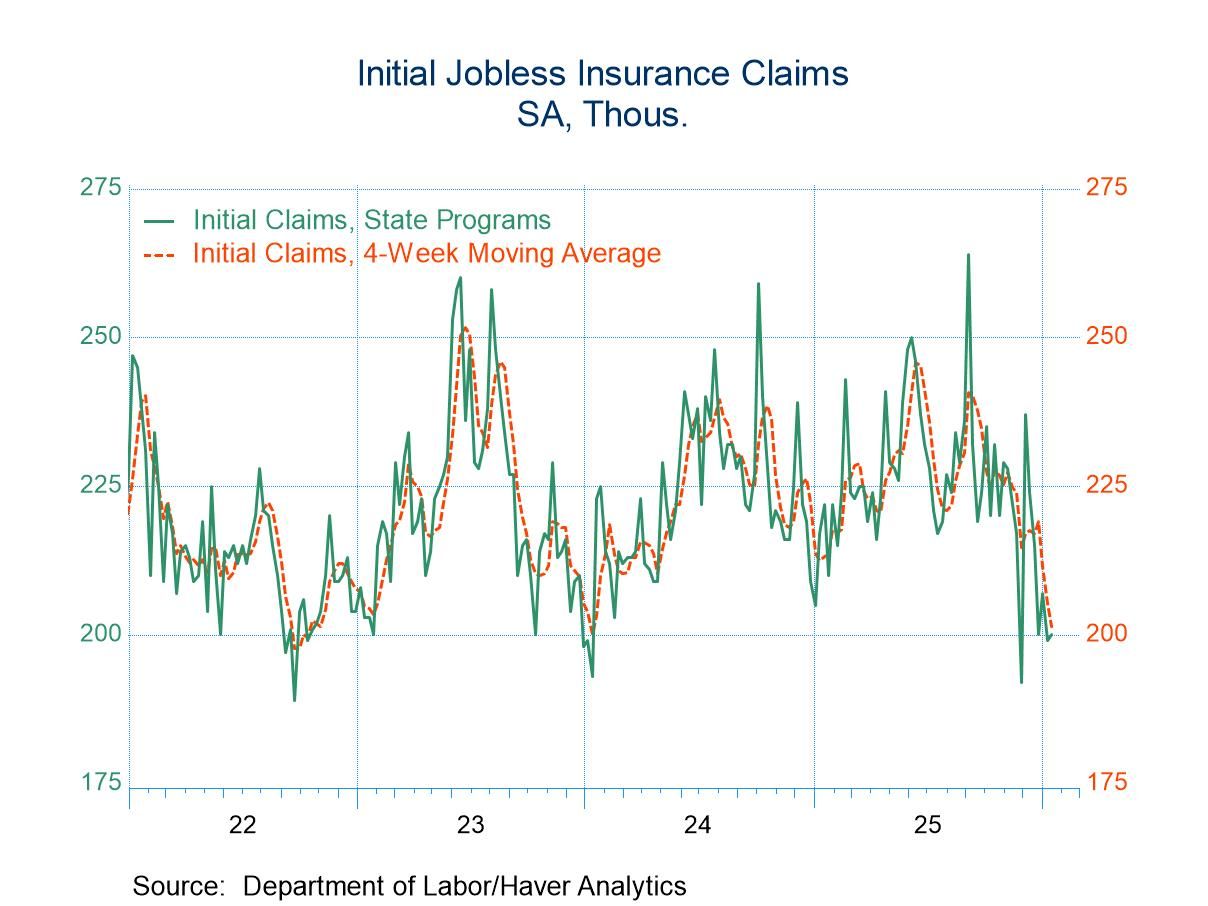 Global| Aug 30 2004
Global| Aug 30 2004U.S. Personal Income Sluggish. Farmers' Income Fell, Wages OK
by:Tom Moeller
|in:Economy in Brief
Summary
Personal income grew much less than expected last month. The 0.1% July gain was the weakest in nearly two years, followed a slim 0.2% rise in June and fell short of Consensus expectations for a 0.5% increase. A 0.5% decline (+6.6% [...]
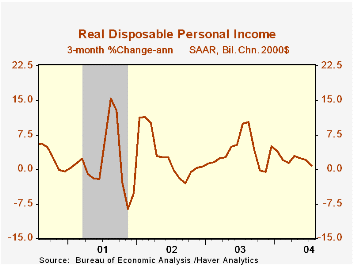
Personal income grew much less than expected last month. The 0.1% July gain was the weakest in nearly two years, followed a slim 0.2% rise in June and fell short of Consensus expectations for a 0.5% increase.
A 0.5% decline (+6.6% y/y) in proprietors' income was the source of much of last month's disappointment and that was driven by a 5.4% drop in farmers' income. Wages & salaries rebounded 0.4% (+4.4% y/y) from the slight decline in June. The rebound was paced by a 0.6% (2.7% y/y) increase in manufacturing wages.
Personal disposable income rose a slight 0.1% (4.3% y/y). After accounting for a 2.4% y/y rise in prices, real disposable income rose a much reduced 1.8% y/y.
Consumer spending jumped 0.8% following an upwardly revised 0.2% June decline. Higher light vehicle sales pulled durables up 4.1%. Non-durable goods sales rose a slight 0.2%, held back by lower gasoline prices, and services spending rose 0.4% (5.1% y/y).
The PCE chain price index fell slightly. Prices less food & energy also were weak, unchanged m/m (1.5% y/y) due to another decline in durables prices (-0.4% m/m, -1.9% y/y). Services prices rose a moderate 0.2% (2.5% y/y). "A Crude Crude Oil Calculation" from the Federal Reserve Bank of St. Louis is available here.
The savings rate fell to 0.6% and prior months' figures were revised down.
| Disposition of Personal Income | July | June | Y/Y | 2003 | 2002 | 2001 |
|---|---|---|---|---|---|---|
| Personal Income | 0.1% | 0.2% | 4.9% | 3.2% | 1.8% | 3.5% |
| Personal Consumption | 0.8% | -0.2% | 5.9% | 5.2% | 4.6% | 4.7% |
| Savings Rate | 0.6% | 1.3% | 2.2% | 1.4% | 2.0% | 1.8% |
| PCE Chain Price Index | -0.0% | 0.2% | 2.4% | 1.9% | 1.4% | 2.1% |
Tom Moeller
AuthorMore in Author Profile »Prior to joining Haver Analytics in 2000, Mr. Moeller worked as the Economist at Chancellor Capital Management from 1985 to 1999. There, he developed comprehensive economic forecasts and interpreted economic data for equity and fixed income portfolio managers. Also at Chancellor, Mr. Moeller worked as an equity analyst and was responsible for researching and rating companies in the economically sensitive automobile and housing industries for investment in Chancellor’s equity portfolio. Prior to joining Chancellor, Mr. Moeller was an Economist at Citibank from 1979 to 1984. He also analyzed pricing behavior in the metals industry for the Council on Wage and Price Stability in Washington, D.C. In 1999, Mr. Moeller received the award for most accurate forecast from the Forecasters' Club of New York. From 1990 to 1992 he was President of the New York Association for Business Economists. Mr. Moeller earned an M.B.A. in Finance from Fordham University, where he graduated in 1987. He holds a Bachelor of Arts in Economics from George Washington University.



